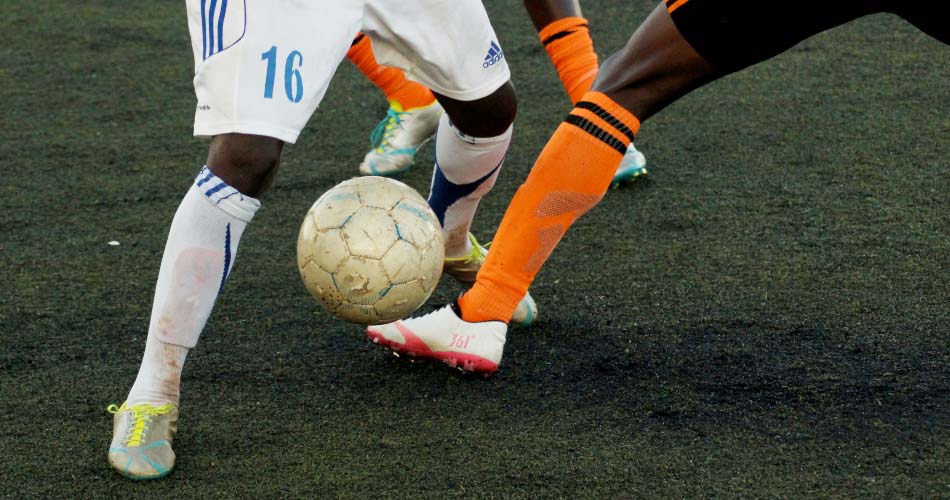Ban On Gambling Shirt Sponsorships ‘Likely’, New Reports Suggest

A series of new reports claim that the UK Government may impose a ban on gambling shirt sponsorships in sports games as part of the ongoing Gambling Act 2005 review.
The Department of Culture, Media and Sport (DCMS) launched its review of the Gambling Act 2005 last December with a call for evidence set to run to March 2021. Several reforms are expected, including stake limits, tighter verification procedures, and a ban on sports shirt sponsorships.
A new report from the Daily Telegraph this week claims that a ban on shirt sponsorships is likely as sources “close to Downing Street” have said that Prime Minister Boris Johnson is in favour of a ban and that his senior cabinet is looking to make “major reforms”.
The Prime Minister’s senior cabinet has reiterated that all reforms will be led by the evidence presented throughout the DCMS’ review. The Government has announced it the DCMS will publish its “white paper” of recommendations for the UK’s gambling industry by autumn.
Although the UK Government is looking to make major reforms, it’s conscious of the impact and timing a shirt sponsorship ban could have on the sports industry, particularly on football. Reports suggest that such a ban would leave a “£110m-a-year dent” on the Premier League and Championship club accounts.
However, an alternative outcome of the gambling review that is reportedly being discussed is a “sports rights levy” in which betting operators will have to pay to governing bodies to replace the missing funds from sponsorships. Previous attempts at implementing the levy were rejected under European law but may be possible now following Brexit.
Before the official launch of the review, Labour MP Carolyn Harris and Chair of the All-Party Parliamentary Group on Gambling Harm claimed she was confident that a sponsorship ban would be one of the first outcomes of a gambling review.
Meanwhile, the English Football League (EFL) leadership wrote to the DCMS last Autumn about its concerns of a ban on shirt sponsorships and warned that lower league football clubs were on a “financial knife-edge” as a result of the Coronavirus pandemic.
The EFL supported the DCMS’ gambling review and changes to gambling’s relationship with football and other sports, but, supporting shirt sponsorships, warned the Government from imposing a blanket ban on all sponsorships as has been done in various European countries.
In the same letter, the EFL highlighted gambling operators’ response to social responsibility concerns, referencing League sponsor Sky Bet which donated 70% of its matchday inventory to promote safer gambling and the education of compulsive behaviour.
Over the last month, the UK Gambling Commission has been teetering back and forth with gambling operators and the Betting and Gaming Council (BGC) over the danger of the illegal online gambling black market. The BGC has stressed that overregulation could push British players to international unregulated sites, concerns the UKGC has said have been “exaggerated”.
Rank Group Announces £42M Loss Due To Covid-19
News that a gambling shirt sponsorship is likely comes as the Rank Group PLC, the owners of Grosvenor Casinos, Mecca Bingo, and other brands, has published its H1 2020/2021 interim results for the six months ending December 31, 2020, and announced a group-wide loss of £42 million as a result of the Coronavirus pandemic.
According to SBCNews, the gambling operator suffered throughout 2020 due to the Coronavirus pandemic as its Grosvenor Casino and Mecca Bingo brick-and-mortar venues were closed for around 56% of operating days across the United Kingdom over six month period to December 31st.
Due to its interrupted trading, Rank Group recorded a 70% drop in net growth revenue to £90 million, down from £306 million in H1 2019/20. The fall in revenue is thought to be caused by the restricted openings of its Grosvenor Casino and Mecca Bingo brick-and-mortar venues which Rank reports lost £21 million and £5.2 million respectively.
In a statement, Rank Group Chief Executive John O’Reilly, said: “There is no doubt that the impact of the Covid-19 pandemic has been far beyond anything we or any other leisure operator could have imagined or planned for.
“The ever-changing restrictions coupled with curfews, which in particular have a seismic impact on our Grosvenor venues, have resulted in an exceptionally challenging first half for the Group.”
Stressing that the company will face further uncertainty, O’Reilly expressed hope that the company will survive in the coming months, saying: “There continues to be uncertainty looking ahead, particularly as our venues remain closed and we have no firm guidance as to when we will be able to reopen.
“We remain focused on managing our liquidity position and, following the successful £70m equity placing in November 2020, combined with the support of our lending banks, I believe we have the balance sheet strength to survive an extended period of closure.”
He ended the statement by adding: “We are now focusing on delivering the next stage of our Transformation plan and are ready to reopen out venues when the virus is under control and the vaccine roll-out has achieved its purpose.”
Similarly, leading UK gambling operator William Hill published a trading update this month reporting a 16% drop in total group net revenue to £1.3 billion for the year ending December 29, 2020. William Hill attributed the drop in revenue to the Coronavirus pandemic and its related restrictions on the group’s 1,414 betting shops.
However, William Hill did report a 5% growth in its online UK net revenue and a 13% increase in its online international net revenue due to the integration of Mr Green. The company also reported a 32% net increase in revenue in the United States following the emergence of online betting in several states.